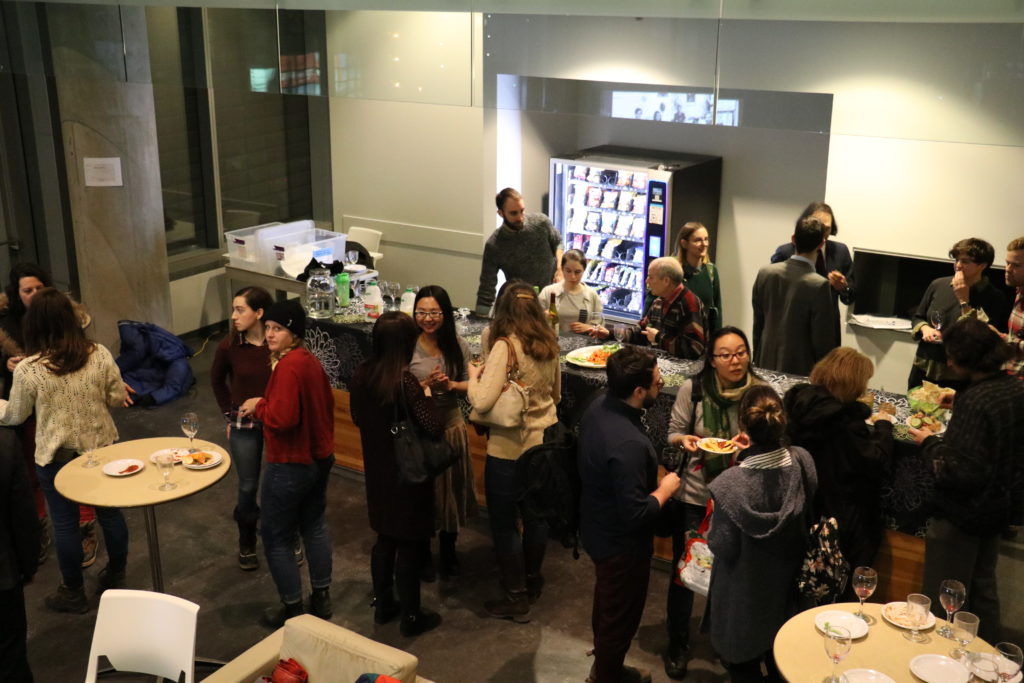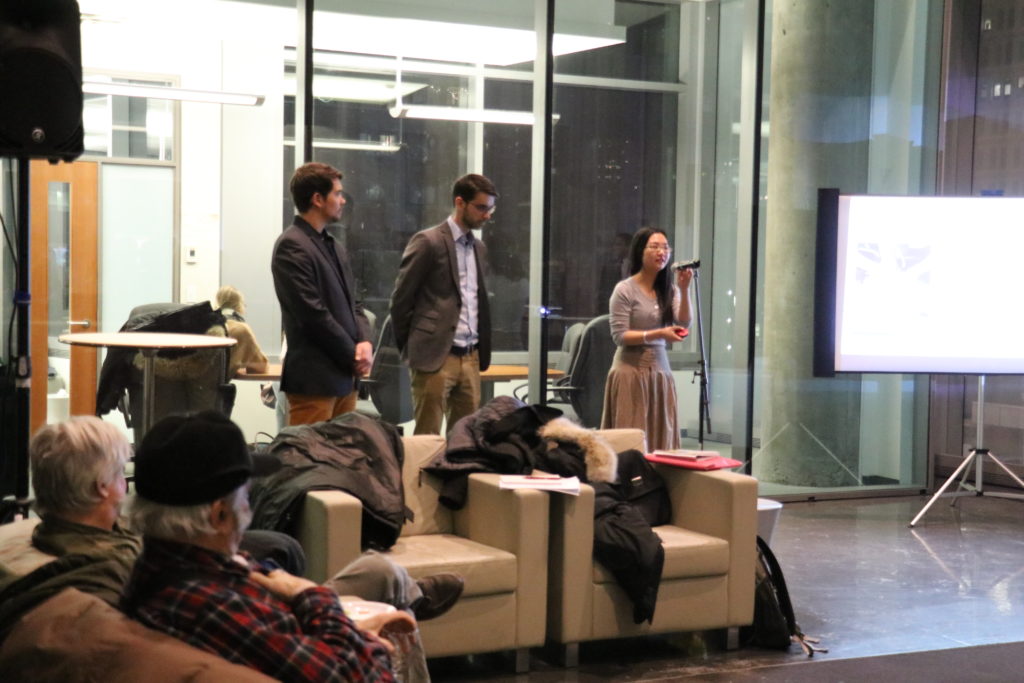Looking back at the launch and discussing the project’s next steps
Ankit Kumar – Social Media and Content Creation intern
A team of highly motivated individuals started working on the Sustainable Investing Project about a year ago. They witnessed a strong interest from different groups and individuals in investing as a way of expressing social engagement and making a positive change.
On January 15, 2018 the SIP team officially launched their guide and presented their first workshop in the JMSB building. To know more about this coveted project, we caught hold of Floris Ensink, one of the board members at Sustainable Concordia and one of the key members of this project since its inception. Let us find out what he has to say:
As per my understanding, the sustainable investing project is being launched in stages. Can you tell us what these stages are and what stage are you currently on?
“Throughout the summer and fall semesters, a team of interns have been working on a guide that demystifies the world of finance in an easy to understand way for anyone who’s never delved into the subject. The second part of the guide discusses all the ins and outs of how to integrate sustainability in investing, it discusses the different approaches of sustainable investing, ways to measure impact, and ways to assess and minimize trade offs between social and environmental impacts, and financial returns. The last part of the guide consists of a more hand on support for whoever is going to put the theory in practice.
We’re still working on that guide, but at the same time, we’re reaching out to our different audiences, such as community groups that have money to invest and individuals that are interested in the topic. We’re organizing sustainable investing workshops, hosting discussions and organizing simulations. Eventually, we want to set up a sustainable fund through which organizations and individuals can invest money, in a way that allows people to easily get started and learn as they go, while being exposed to acceptable levels of risk. The first call out for those actions was given at the launch event held in John Molson School of Business on January 15th.”
About the SIP launch, how do you feel it went? What kind of feedback did you get about the event?
“For us, the launch event was a great opportunity to test if we would succeed in bringing our enthusiasm and insights about sustainable investing across to a varied audience. The feedback we got from people was very encouraging. People were engaged and asked a lot of pertinent questions. We’ve been asked to come and talk or provide workshops by a number of organizations. We really got the feeling there’s a strong demand for what we’re doing and that there’s a momentum for sustainable investing.”
 That’s amazing! At the project launch, I also go to know that the SIP is a community-oriented project. Can you tell us how this project can help the Concordia community?
That’s amazing! At the project launch, I also go to know that the SIP is a community-oriented project. Can you tell us how this project can help the Concordia community?
“Our main target audience consists of community groups and individuals who want to contribute to the community. As mentioned before, we want to make sustainable investing, as a means to express engagement and as a way to make a difference, accessible to a broader group of people. We want to make people aware of the possibilities of sustainable investing and help them unlock that potential. What we try to bring across is that money is power, when you put that money on the bank, you give your power to the bank, when you invest it, you exercise your power. In some way, we’re trying to democratize sustainable investing. We believe that broader active participation of citizens in investment decisions will be beneficial for financial markets as legitimate centres of power, as well as for the communities that are impacted by decisions make on financial markets.
At Concordia, we have everything that is needed to set a positive example. We have the funds, the knowledge, the audience, the infrastructure and a culture that is strongly rooted in participatory governance. We strongly feel that there is a huge potential to make this subject one of the differentiators for Concordia University.”

Now that a considerable amount of research has been done on “Sustainable Investing” and the project has been launched, what would be your next course of action?
“The most important next step will be to host workshops on sustainable investing and to organize talks about it. The project will become meaningful in the interaction with people. We want to facilitate exchanges, raise awareness, share knowledge and start familiarizing people, both those with a financial and those with a community background, with the concepts and terminology that we’re using in our guide. We can’t do this alone. We solicit student groups, community groups, experts on finance, professors, professionals, artists, etc. to help us host events, validate our guide, reach out and make the project come to life. What we would like the Concordia administration to help us with is to provide more transparency about Concordia’s endowment funds and in the social, environmental and governance performance of the funds it’s investing in. I know that that has not been common practice in the past, but we must look into the future and realize that in the long term, exposing yourself to your stakeholders will create stronger ties, build trust and will eventually be a source of pride for the entire Concordia community.”
Who all are there in the team of this project? How can other interested folks join the team?
“The project is hosted by Sustainable Concordia and credit must largely go to Mauricio Buschinelli, who is the financial coordinator of SC and who facilitates the entire process. Another person whose time and expertise has been invaluable is Marc Richards, who held the position of financial coordinator until 2016. Jueji Chen, Mariamalia Alvarez and Kamden Biggart are interns who are, or have been working on the project and who have provided fantastic support with writing the guide. Chantal Forgues is supporting the project in here role as sustainability coordinator at Concordia University. This is a rare group of people who each have expertise both in finance and in sustainability, and who, in some way, know how to make things make sense from both perspectives.”
Call-out to interested folks: Come join our team!
“As mentioned, we will be soliciting feedback from financial experts. We’ll need help organizing workshops, hosting talks, spreading the word. I invite anyone who is interested in joining our team or helping with the project to send us an email, indicating how you’d like to contribute, so that together we can make this something really exciting.”







 That’s amazing! At the project launch, I also go to know that the SIP is a community-oriented project. Can you tell us how this project can help the Concordia community?
That’s amazing! At the project launch, I also go to know that the SIP is a community-oriented project. Can you tell us how this project can help the Concordia community?





